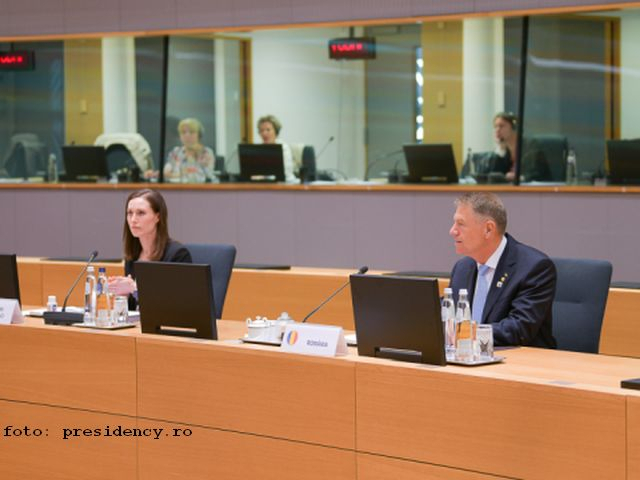Emergency meetings in Brussels
An unprecedented mobilization of Western democracies was witnessed this week after Brussels hosted NATO, EU and G7 summits

Roxana Vasile, 25.03.2022, 14:00
A month after the start of the most serious military conflict in Europe since the end of WWII, EU, NATO and G7 leaders symbolically met on the same day to discuss Russias invasion of Ukraine. European leaders are preparing to curb their dependency on Russian gas imports. G7 members have called on Moscow to refrain from using nuclear, chemical and biological weapons, whereas NATO decided to reset its defensive format. The Alliances eastern flank will comprise four new multinational battlegroups, to be set up in Romania, Bulgaria, Hungary and Slovakia, while NATOs presence in the Black Sea region will be enhanced. NATO Secretary General Jens Stoltenberg said leaders of 30 NATO states also decided to provide additional support to Ukraine.Moreover, NATO called on China to refrain from providing any economic or military support to Russias invasion. The end goal is to prevent the conflict in Ukraine from escalating, which would trigger a global conflict. Representing Romania in Brussels, president Klaus Iohannis said strengthening NATOs presence in Romania and on the eastern flank is a strategic objective of Bucharest, adding that Romanians have nothing to fear regarding the conflict in Ukraine:
“We are a part of the biggest, strongest defensive alliance of all times. Our soldiers are well trained. So I can tell you in full honesty that Romania is not in danger. Romania is safe, by virtue of our armed forces and NATOs”.
G7 leaders have signed a joint statement, calling on Russia to observe the ruling of the International Court of Justice and immediately suspend its military operations in Ukraine and withdraw all troops from the area. As for the EU, while a boycott of Russian gas imports is impossible right now, European leaders are looking for solutions to curb their dependency on Russia in the near future. Political expert Andrei Țăranu believes that never before have so many meetings been devoted to the same crisis:
“The conflict seems to pit the US against China in economic terms. China is like a global challenger, whereas Russia is arguably dominated the public and political space with this conflict against a sovereign state, against a European state with democratic aspirations, a conflict that lacks any legitimacy. In this context, both the EU and NATO have rallied quite quickly and have kicked off a pragmatic change”.
Andrei Țăranu also argues we are currently witnessing a major gepolitical change. (VP)






























